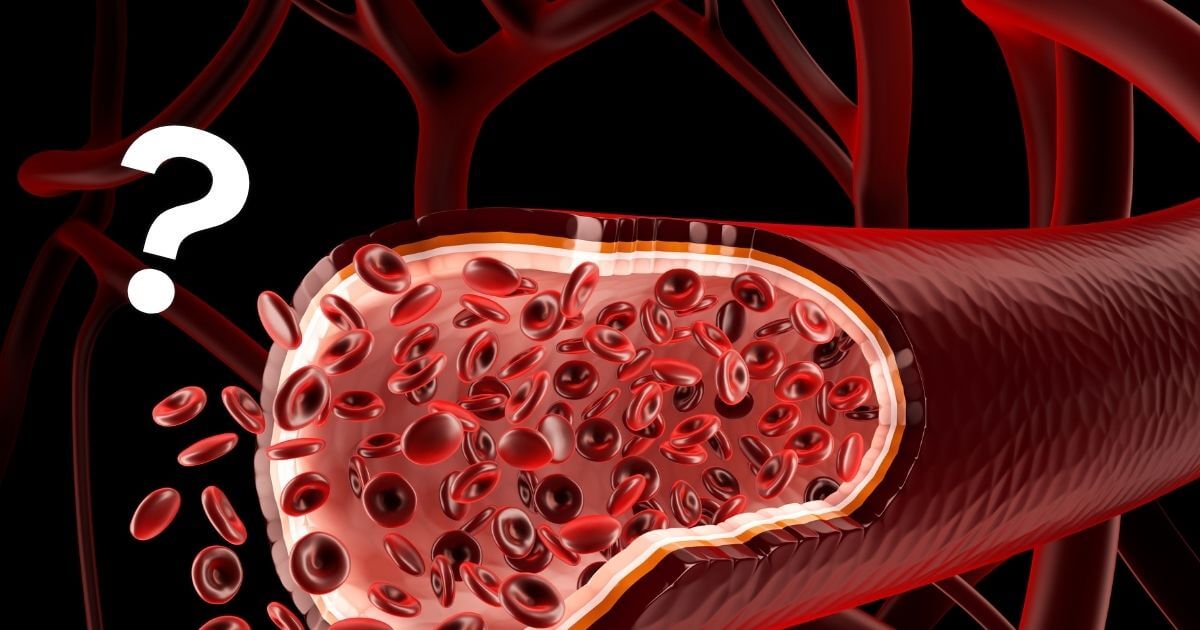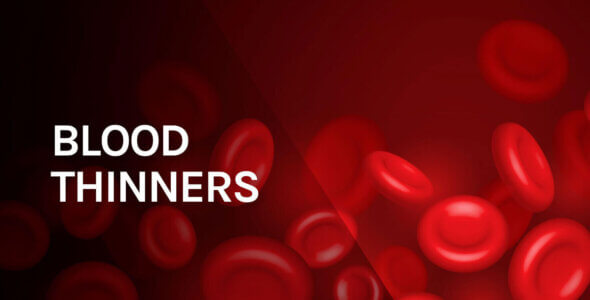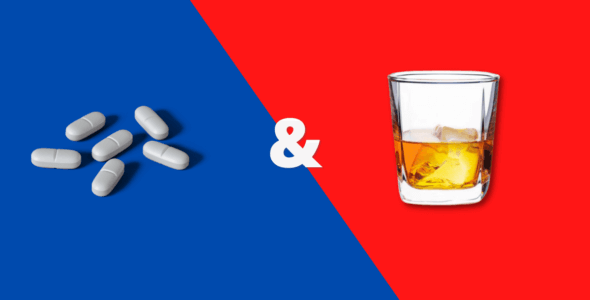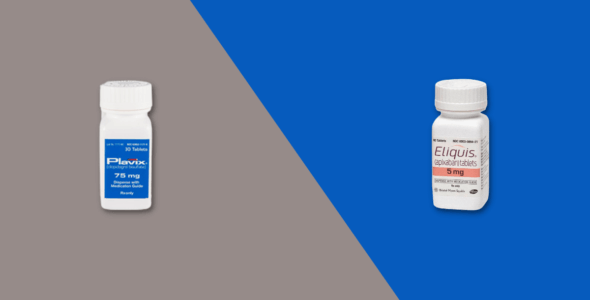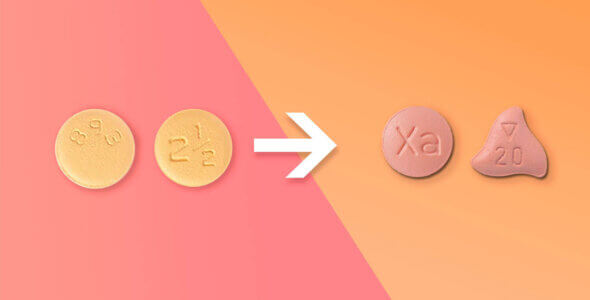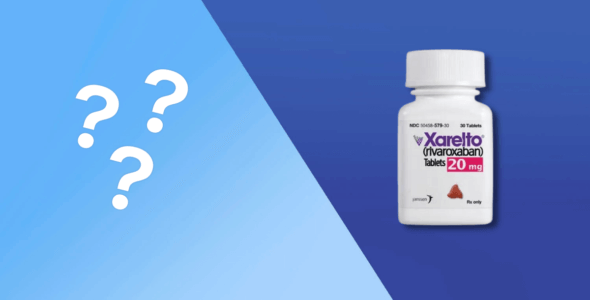What are anticoagulants?
Table of contents
Anticoagulants, also described as blood thinners, are a group of drugs that reduce the ability of blood to clot. Anticoagulants are used if you are at increased risk of blood clots that could potentially block a blood vessel and disrupt the flow of blood around your body. This can lead to:
- Stroke resulting from a blood clot that restricts the flow of blood to your brain
- Ischemic attacks have similar symptoms to a stroke, but the effects usually last less than 24 hours
- A heart attack resulting from a blood clot that blocks a blood vessel supplying your heart
- Deep vein thrombosis (DVT), where a blood clot forms in one of the deep veins in your body, usually your legs
- Pulmonary embolism, where a blood clot blocks one of the blood vessels around your lungs
What do anticoagulants treat?
You may be prescribed anticoagulants in some of the following situations:
- Recent hip replacement or knee replacement surgery – as movement is limited and blood clots may form
- Aortic valve replacement – as blood clots can form on the surface of the new heart valve
- Atrial fibrillation – a type of irregular heartbeat (arrhythmia) that can cause blood clots to form in the heart
- Antiphospholipid syndrome – where the immune system attacks fats and proteins in the blood vessels, causing the blood to clot
- To treat blood clots, such as deep vein thrombosis DVT or a pulmonary embolism or prevent recurrent venous thromboembolism
How do anticoagulants work?
When you get hurt, blood cells called platelets gather at the injury site and form a blood clot. These cells are sticky, and they form clumps creating a plug. Clotting factors are also released from platelets that help form a mesh to form the plug to close the wound.
The clotting process is essential when you’re injured. Sometimes, however, a blood clot can appear in an artery that supplies your heart or brain with oxygen-rich blood. When a clot blocks blood flow to your heart, it can cause a heart attack. If it blocks the blood flow to your brain, it can cause a stroke. The use of blood thinners in this group of patients is common. Warfarin (Coumadin) is the most widely used anticoagulation therapy.
What are the different types of anticoagulants?
Anticoagulants are closely related to antiplatelet drugs and thrombolytic drugs by manipulating the various pathways of blood coagulation. There are three main types of anticoagulant medications:
- Vitamin K antagonists
Vitamin K helps your blood clot. You get it naturally from green leafy vegetables like broccoli and spinach. Vitamin K antagonists such as warfarin (Coumadin, Jantoven) block the amount of vitamin K available for the blood coagulation pathway to produce clotting factors II, VII, IX, and X. This reduces the blood’s ability to clot.
It is important to keep the amount of vitamin K in your diet low so that your doctor can calculate the right dose of daily warfarin for you. You’ll get blood tests so your doctor can track the effects of your dose and your diet. Your doctor will likely use the international normalized ratio test, or INR, to check on how well your blood can clot.
- Direct Oral Anticoagulants (DOACs)
DOACs are faster acting than vitamin K antagonists, and can also be more predictable, meaning you may not need to have blood tests. On the other hand, these drugs tend to work for shorter periods, so you may need to take them twice a day, compared to once daily for other anticoagulants.
DOACs include:
Direct thrombin inhibitors: These drugs interfere with your body’s use of thrombin, a key enzyme that helps clot your blood. Though usually injected under the skin, you can take it in pill form as dabigatran (Pradaxa).
Direct factor Xa inhibitors: Factor Xa’s job is to activate prothrombin to thrombin. This type of anticoagulant stops the Xa factor in the clotting process from carrying out its job. These medications include apixaban (Eliquis), betrixaban (Bevyxxa), edoxaban (Lixiana, Savaysa), and rivaroxaban (Xarelto).
- Low molecular weight heparins (LMWH)
Low molecular weight heparins are more predictable and last longer, which means your doctor doesn’t need to track its effects as closely as with other anticoagulants like warfarin. Low molecular weight heparin drugs include dalteparin (Fragmin) or enoxaparin (Lovenox). Doctors prescribe a fixed-dose based on your body weight. You inject this medication under your skin.
What are the potential side effects of anticoagulants?
Anticoagulant medications increase your risk of bleeding causing adverse effects such as:
- Passing blood in your urine
- Severe bruising
- Long-lasting nosebleeds
- Sudden severe back pain
- Difficulty breathing or chest pain
- In women, heavy or increased bleeding during your periods, or other bleeding from your vagina
Talk with your health care provider about any side effects you may experience. The American Heart Association is also a good resource to read more about anticoagulants.
Medically reviewed
A medical professional has reviewed this article.


Jamie Winn, PharmD
Jamie Winn, PharmD
Dr. Jamie Winn received his Doctor of Pharmacy in 2002 from the University of South Carolina College of Pharmacy, Columbia, SC. Jamie is a medical reviewer for NiceRx.

